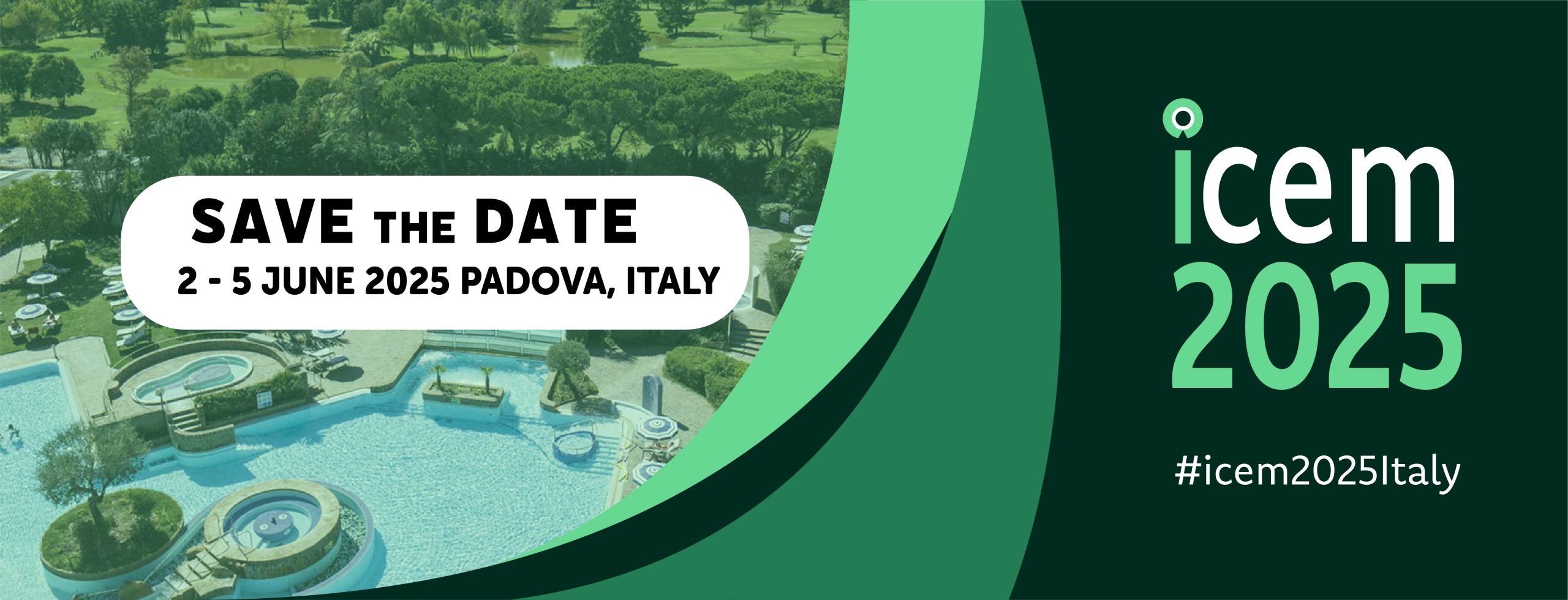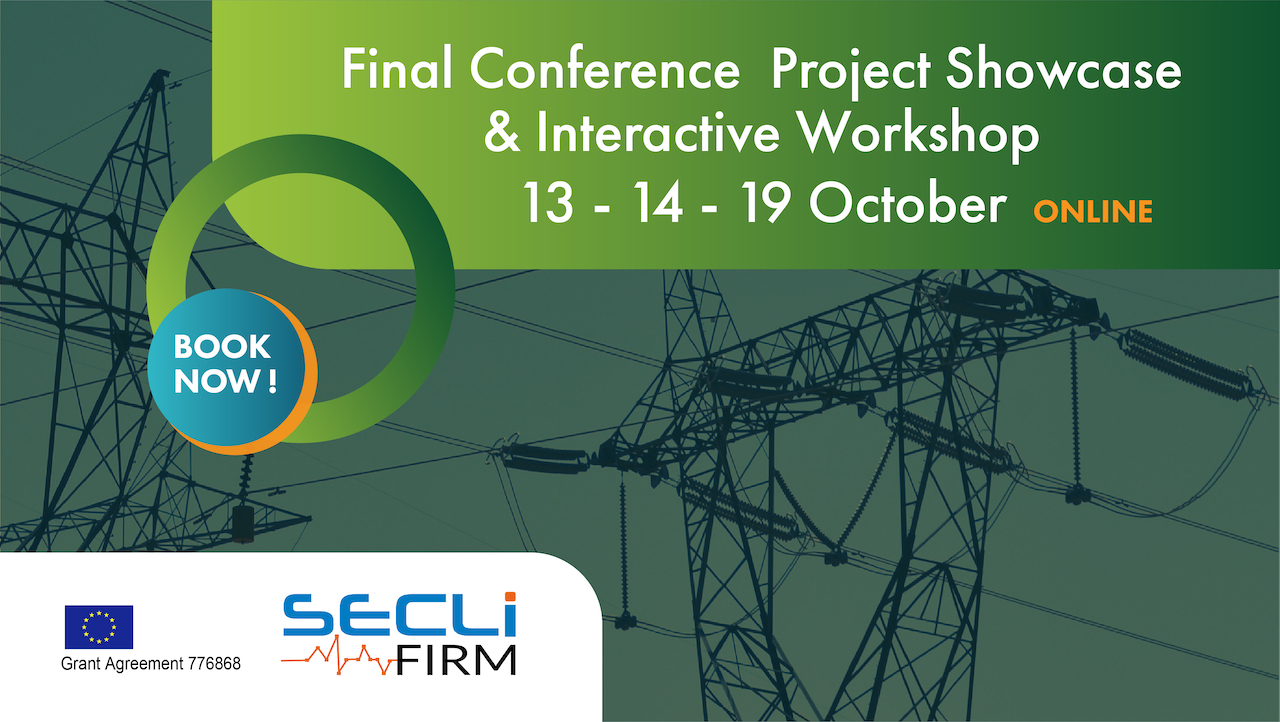
Upcoming events
The International Conference on Energy & Meteorology (ICEM) 2025 returns for its 8th edition with the theme “Contributing to the Net Zero Emission Target.”
Join us June 2-5, 2025, at Galzignano Terme Spa & Golf Resort for plenary sessions, workshops, panel talks, and networking.
The program will explore meteorological and energy data, forecasts, AI innovations, and tools for energy transformation.
ICEM 2025 fosters collaboration among weather and climate scientists, energy experts, and communication specialists.
For more information, click here
The Solar World Congress 2025 (SWC 2025), organised by ISES and ABENS, will take place November 4-7, 2025, in Fortaleza, Brazil.
This major event precedes COP30 in Belém and will showcase advancements in solar and renewable energy. Researchers worldwide can submit abstracts by April 30, 2025, to present their latest findings to the global solar community. Visit the SWC 2025 Author Corner for submission details.
ISES and ABENS look forward to welcoming participants to Brazil for this key solar energy congress!
For more information, click here.
Past Events
The 7th International Conference Energy & Meteorology (ICEM) with the theme “Towards climate-resilient energy systems” and held in the beautiful Galzignano Terme Spa and Golf Resort near Padua, Italy was a great success. Around 150 delegates joined the in-person ICEM 2023, for three full days of plenary sessions, parallel sessions, poster sessions, workshop-type discussions, panel discussions, networking and more in a relaxed and educational environment.
The planned Summer School 2023: Mastering the Development of Climate Services co-organised by the University of Vigo, WEMC, World Meteorological Organisation, and Inside Climate Services srl did not proceed as planned. We are considering alternatives. Offers of support would be very welcome – please contact us at info@wemcouncil.org
At the fundamental level, the course focused on creating awareness and enhancing knowledge about the design and application of weather and climate services for the energy sector in Central Asia. Following this, the organising committee and the expert speakers concentrated on building capacity on the application of weather and climate services for net-zero energy transitions in the region in order to leverage international climate finance. A more overarching and all-encompassing aim of the course was to foster a dialogue and partnerships between the hydrometeorological and energy communities in the region, to address major energy challenges in upcoming years.
For more information about this event, click here.
The objective of this Meteorological Masterclass series was to present the latest advances in weather and climate forecasting, delivered by the Royal Meteorological Society in partnership with the University of Reading.
Series title: “Advances in weather and climate forecasting”
Hosted by: Royal Meteorological Society & University of Reading
Presenters: Three leading experts from the University of Reading
Focus: Scientific advances in understanding and predicting weather, climate, and related impacts
For more information about this event, click here.
The objective of this Royal Meteorological Society event was twofold.
The first was to host an in-person discussion on tailoring seasonal climate forecasts for the utility sector as part of the Society’s Meetings Programme:
Hosted on Wednesday 18th May from 13:30 – 17:00 BST
Location: ECMWF headquarters, Reading, UK
Free and open to non-members
Open to all: from expert to enthusiast
The second was to provide a forum for topical discussions on the latest advances in weather and climate, fostering collaboration between professionals and the public.
For more information about this event, click here.
This free training course is designed to equip participants with knowledge and tools to understand and apply weather and climate information to energy systems, particularly for enhancing renewable energy uptake.
Learn about the impacts of weather and climate on energy systems
Understand how climate services support clean energy transitions
Gain practical experience in designing and delivering your own service
Work in small teams on hands-on applications
For more information about this training, click here.
The Added Value of Seasonal Climate Forecasting for Integrated Risk Assessment (SECLI-FIRM) EU H2020 project ran for 45 months from February 2018 to October 2021. It aimed to demonstrate how the use of improved climate forecasts, out to several months ahead, can add practical and economic value to decision-making processes and outcomes in both the energy and water sectors. The project promoted research advances in the most effective seasonal forecasts for specific applications, as well as the uptake of seasonal forecasts by industry, expanding the climate services market.
In this course, participants at BSc, MSc and PhD level learnt about the importance of climate services for the energy and water sectors, understanding the operational and regulatory context. They acquired theoretical knowledge and practical tools to design and deliver their own climate service, working in small teams. Hearing from leading experts, they learnt about real-world applications of climate services and best practice approaches.
For more information about this event, click here.
This initiative aimed to enhance access to accurate, reliable weather and climate information for better decision-making in the face of global climate change and increasingly unpredictable conditions.
Weather and climate affect daily life, business operations, and financial systems.
The unpredictability of seasonal patterns and extreme events is rising.
There’s a growing demand for actionable, science-based climate information.
Reliable climate data supports planning, risk management, and resilience.
For more information about this event, click here.
Based in Shanghai, China, the purpose of this course was to:
1) Update energy practitioners on the state-of-the-art in weather and climate modeling and forecasts at different timescales.
2) Create awareness about the application of weather & climate information for the energy sector and help foster a dialogue between both communities to address major energy challenges in upcoming years.
The course offered opportunities for discussions and practical examples. These activities also included the drafting of mini-proposals for an energy climate service. In addition, the course included guest lectures to provide in-depth exploration of the current frontiers in the energy and climate nexus and a visit to a nearby energy site.
The course was targeted at energy sector specialists with a broad understanding of meteorology and climate, and to meteorologists and climate scientists who wish to better understand the energy business.
For more information about this event, click here.
The purpose of the course was to:
-
Update energy practitioners on the state-of-the-art in weather and climate modeling and forecasts at different timescales.
-
Create awareness about the application of weather & climate information for the energy sector and help foster a dialogue between both communities to address major energy challenges in upcoming years.
The course offered opportunities for discussions and practical examples. These activities also involved the drafting of mini-proposals for an energy climate service. In addition, the course included a guest lecture to provide in-depth exploration of the current frontiers in the energy and climate nexus.
The course was targeted at energy sector specialists with a broad understanding of meteorology and climate, and to meteorologists and climate scientists who wished to better understand the energy business.
For more information about this event, click here
The objectives of the workshop were to:
• To identify vulnerabilities of energy sector to extreme weather events in the context of climate change adaptation;
• To identify impediments to the use of weather / climate information for the energy sector in the context of climate change adaptation;
• To suggest ways to improve and/or facilitate the transfer of knowledge between weather / climate scientists andthe energy experts to allow an optimal use of climate risk
management;
• To outline proposals to improve the way in which weather / climate information is used for modelling demand and to provide warnings for potential disruptions on
energy operations and infrastructure;
• To discuss possible contributions of the weather / climate scientists and the energy experts to climate change adaptation policies for energy security.
For more information about this event, click here
The objective of this NATO Advanced Study Institute (ASI) was twofold.
The first was to expose the four main components of seasonal to interannual climate forecasting systems along with several illustrative examples for each component:
A) Generation of initial conditions for dynamical model forecasts
B) Dynamical models and their coupling
C) Statistical modelling, calibration and model output assessment
D) Application of forecast products to specific users with emphasis on applications related to security.
The second was to offer a judgment of the limitations and prospects of seasonal to interannual climate forecasting systems. Ways to improve the communications between modellers, forecasters, and applications experts in order to more effectively obtain potential benefits for this emerging science will also be addressed.
For more information about this event, click here.
Hosted in-person on Wednesday 18th May from 13:30 – 17:00 BST at the ECMWF headquarters in Reading, UK. The event is free, open to non-members and is part of the Royal Meteorological Society Meetings programme, which are open to all, from expert to enthusiast, for topical discussions on the latest advances in weather and climate.
“Advances in weather and climate forecasting” – a series of Meteorological Masterclasses run by the Royal Meteorological Society in partnership with the University of Reading. During this series, three leading experts from the University of Reading will discuss the latest scientific advances for understanding and predicting weather, climate and its impacts.
In this free course, you will learn about the impacts of weather and climate on energy systems and their importance in ensuring effective and efficient uptake of renewable, clean energy sources. You will acquire theoretical knowledge and practical tools to design and deliver your own weather and climate service, working in small teams.

Weather and climate affect every aspect of our daily lives, business and financial operations. In light of global climate change and increasing unpredictability of seasonal climate patterns and extreme weather events, there is an ever-growing need for more accessible, accurate and reliable information to support a wide range of decision-making processes.
